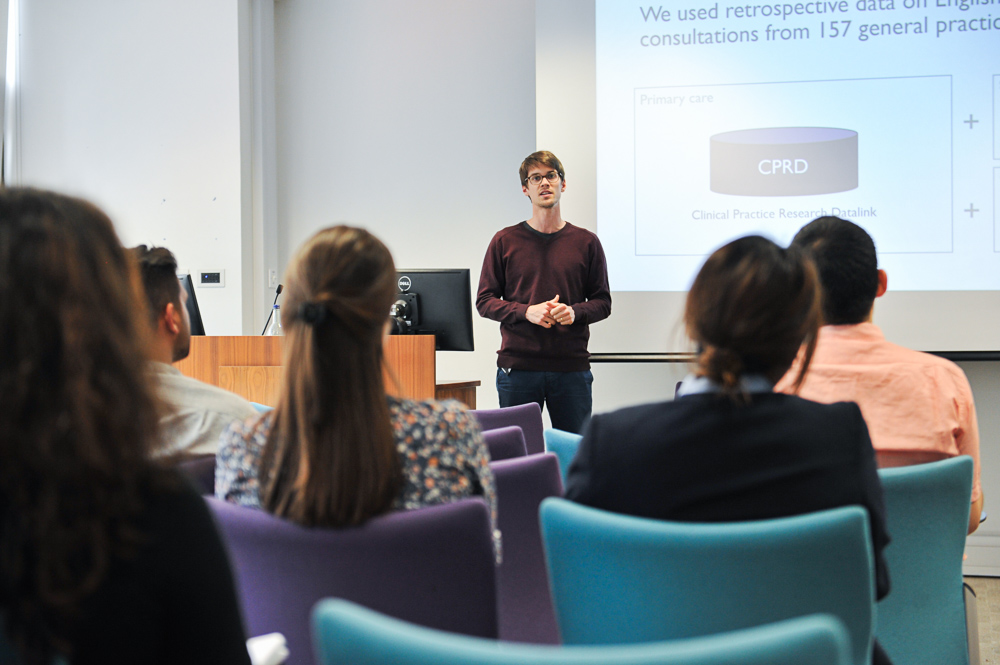Learn to manage and analyse large, diverse datasets and develop quantitative, computational and practical data management and professional skills. Find out more

We offer 10 annual Master’s degree scholarships worth £10,000 for students with an interest in dementia or diabetes research.
HDR UK is partnering with charities and industry to offer master’s degree funding and research opportunities for up to ten talented students.
The scholarships are jointly funded by HDR UK and partners including Diabetes UK and Alzheimer’s Research UK.
Applications are welcomed from students who have been accepted on relevant UK university master’s courses. The scholarships will not only pay £10,000 towards their programme, but will allow them to carry out a research project in one of these disease areas.
They also provide invaluable experience of working in an important area of healthcare research and offer the insights, knowledge and the experience and qualifications students need to enter a field that offers lots of great career opportunities.

“These highly flexible scholarships allow students to carry out valuable real-world research at theforefront of healthcare. They are an ideal for launching a fulfilling career that makes a genuine difference to people’s lives and wellbeing.” HDR UK Chief Talent and Training Officer, Christopher Yau
Shortlisted candidates will be invited to take computing aptitude tests followed by interviews. MSc studies will commence each September.
Applications are welcome from returning students and members of under-represented groups.
To find out if you meet the entry requirements email Learn@hdruk.ac.uk.
Be the first to find out about HDR UK careers and training opportunities with our free monthly e-bulletin.
Alzheimer’s Research UK – Scholars will have the opportunity to be involved in ARUK’s Early Career Researcher programme which includes training and networking events, career development and mentoring groups and membership of the ARUK Network.
Diabetes UK – Scholars will be funded to attend the Diabetes UK Professional Conference.
Learn to manage and analyse large, diverse datasets and develop quantitative, computational and practical data management and professional skills. Find out more
Become a digital health expert with the skills to work in multidisciplinary teams in industry or the health and care service. Find out more
An exciting mix of medical statistics and the latest developments in data science enabling students to engage with complex statistical and health data science challenges. Find out more
Gain a broad education in methods from the mathematical, computational and statistical sciences that can be applied to answer scientific questions in biology and medicine. Find out more
A gateway to exciting careers in health data – the programme offers a genuinely interdisciplinary experience and an opportunity to gain cutting edge skills in health-related data. Find out more
Acquire cutting-edge health data science skills and put them into practice in projects with world-renowned experts in statistical and health sciences. Find out more.
This degree provides a comprehensive training in the management, modelling and interpretation of health and healthcare data. Find out more
A high-quality training in the analysis of genomic big data, from basic statistical and computational analytics, through bioinformatics to clinical trials. Find out more
This MSc combines research-focused teaching, training and development plus the chance to produce significant piece of health data science research. Find out more.
The students come from many backgrounds and are studying at universities all across the country. Find out more about some of them below.